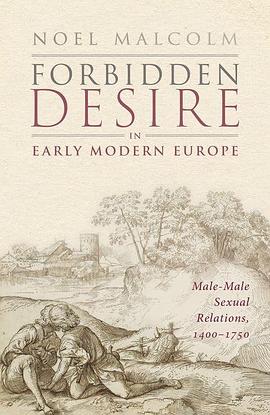
Male-Male Sexual Relations, 1400-1750
Noel Malcolm
overview
A landmark study of the history of male-male sex in early modern Europe, including the European colonies and the Ottoman world.
Until quite recently, the history of male-male sexual relations was a taboo topic. But when historians eventually explored the archives of Florence, Venice and elsewhere, they brought to light an extraordinary world of early modern sexual activity, extending from city streets and gardens to taverns, monasteries and Mediterranean galleys. Typically, the sodomites (as they were called) were adult men seeking sex with teenage boys. This was something intriguingly different from modern homosexuality: the boys ceased to be desired when they became fully masculine. And the desire for them was seen as natural; no special sexual orientation was assumed.
The rich evidence from Southern Europe in the Renaissance period was not matched in the Northern lands; historians struggled to apply this new knowledge to countries such as England or its North American colonies. And when good Northern evidence did appear, from after 1700, it presented a very different picture. So the theory was formed - and it has dominated most standard accounts until now - that the 'emergence of modern homosexuality' happened suddenly, but inexplicably, at the beginning of the eighteenth century.
Noel Malcolm's masterly study solves this and many other problems, by doing something which no previous scholar has attempted: giving a truly pan-European account of the whole phenomenon of male-male sexual relations in the early modern period. It includes the Ottoman Empire, as well as the European colonies in the Americas and Asia; it describes the religious and legal norms, both Christian and Muslim; it discusses the literary representations in both Western Europe and the Ottoman world; and it presents a mass of individual human stories, from New England to North Africa, from Scandinavia to Peru. Original, critical, lucidly written and deeply researched, this work will change the way we think about the history of homosexuality in early modern Europe.